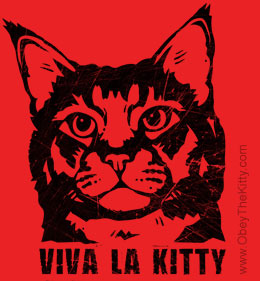Kinda hard to fully articulate the following post, but I don’t think America has profoundly and deeply processed the *horror* of slavery.
I know we all go “yeah, it was awful”, etc. – and we’re sincere about it. But it wasn’t just a “bad” thing, a dark part of our history that we overcame with light.
It was a horror – a horror in its truest sense. That’s the word I think that needs to sink in. And I think a part of the reason that civil rights haven’t come as far as they needed to is because we collectively haven’t fathomed the horror of it. It’s something we can’t even approach directly.
This not-processing goes back to the birth of the Union (and long before) – the Philadelphia Convention basically tabled the issue of slavery because it was too contentious and it most likely have stalled unification. But the delay ended up almost costing the Union more gravely (we’re still in recovery from the Civil War). In this regard, the first version of the Constitution was an utilitarian success, but it was not without a moral failure – the moral failure yet survives.
The Northern states failed to process it, not just the Southern ones – even today, there’s a bit of myth that the North was slave-friendly. The North may have “tolerated” former slaves, but the North wasn’t exactly an utopia of liberation either. Many slaves who broke free and traveled North were hunted down and murdered like cattle there: Horrors that were swept into the collective shadow of history.
A century passed between the the time of the Emancipation Proclamation and that one time a young reverend requested the redemption of a broken promissory note, and even then America did not fully comprehend the horror undermining its history.
A half century later still, and I think our collective delay in processing what happened partially explains today’s passive-aggressive and outright racism. American slavery wasn’t just about racism – it was something even deeper and more terrifying.
I’m starting to think that we won’t evolve much farther without doing some major soul-searching.
But honestly: I don’t know how that would be done. We don’t even have a work of literature that comes close to revealing the horror of our slavery. We don’t have a Heart of Darkness. Even the British sub-consciousness somehow managed to confront at some level its own partially horror-driven empire.
We can talk about racism and call it out – we need to continue that in fact. I’d argue, however, that even our talk of “being tolerant” has misguided us – for “tolerance” implies “putting up” with something we don’t like. Can you imagine MLK saying “I have a dream…that one day, we’ll all rise up and…..tolerate each other”. He never once said that. That’s the ambition? To tolerate each other? (MLK was about intolerance – intolerance of violence and racism and sexism. He was just eloquent and articulate about it.) And yet, that one word set a bell ringing in our ears, and perhaps set us down a much less ambitious goal. Our goal shouldn’t have been tolerance – it should have been transcendence. To transcend the system of violent economics that was slavery.
Perhaps we need a whole new approach. A new language.
Perhaps some hair-pulling and serious grieving.
But who – or what – do we have now to spur us in that direction?
LOLcats, twerks, tweets, hashtags?
Those aren’t hopeful signs, are they?
Social media doesn’t seem to be helping, does it? In fact, it may make things worse – at least before things get better.
Perhaps Social media will be the battle grounds for America’s 21st Century Civil War. And who will be sacrificed upon the slaughter benches of digital violence?

